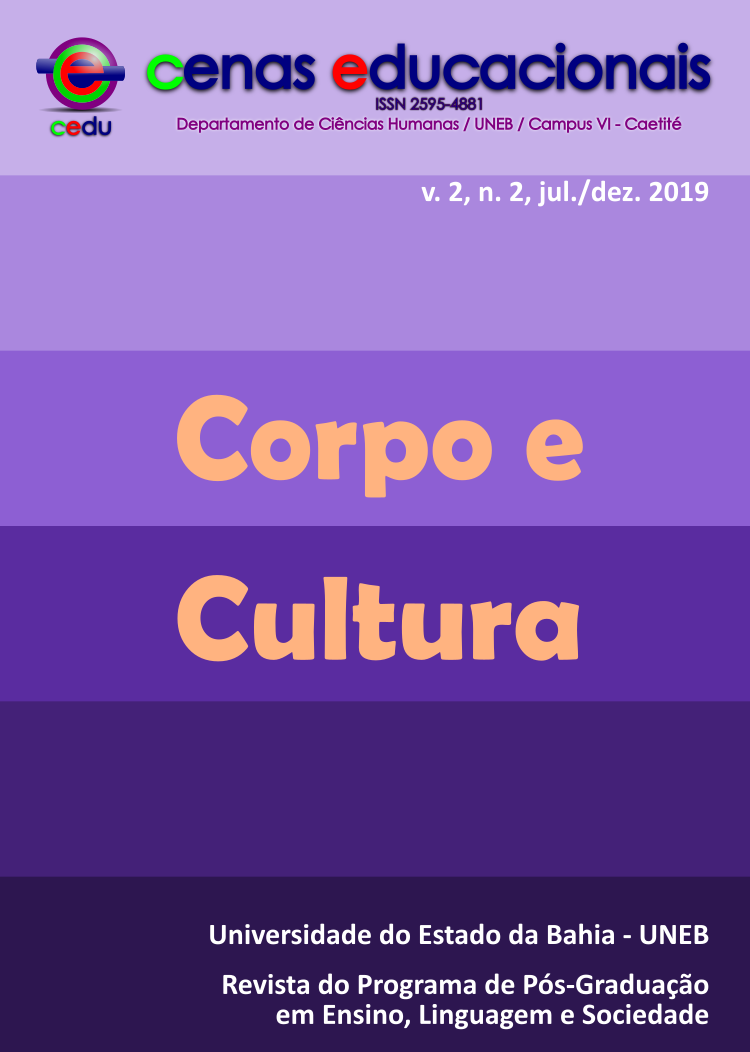ANGLOPHONE LITERATURES IN THE FORMATION OF LITERATURE TEACHERS: RUPTURE OF THE CANON FROM LITERATURES OF THE GLOBAL SOUTH
Keywords:
literature, literature teaching, Anglophone literature, Southern literature, decoloniality of knowledgeAbstract
The coloniality of knowledge imposes ways of replicating matrices, epistemologies and it positions us in the situation of repeaters of knowledge. Traditionally, Anglophone literatures have been addressed in Literature Teacher Training Colleges, from a eurocentric, canonical and monological perspective. The objective of this work is to justify a proposal for the study of Anglophone literatures in teacher training colleges supported on the one hand, in counter-colonial theories such as criticism of Orientalism, postcolonial theory, criticism of colonial discourse, afrocentrism and postcolonial feminisms; and on the other, in a corpus of Anglophone literatures of the global south (African, Asian, Caribbean and English and North American ethnic minorities), considered as subaltern or impure by the English colonial gaze.Downloads
References
ANAYA FERREYRA, N. Literatura anglófona: Del yugo colonial a la experiencia creativa. México: Universidad Autónoma de México, 2000.
ANZALDÚA, G. Borderlands. La frontera. The New Mestiza. San Francisco: Aunt Lute Books, 1999.
BENTON, M. Canons ancient and modern: The texts we teach. Educational Review, n. 52, pp. 269-277, 2010.
BLOOM, H. El canon occidental. Barcelona: Anagrama, 2009.
CANON (Oxford Dictionary). Disponible en http://www.oxforddictionaries.com/canon. Acceso el 5 de julio de 2019.
CHINUA, A. No longer at Ease. London: Heineman, 1963.
CULLER, J. Introducción a la teoría literaria. España: Biblioteca de Bolsillo, 2000.
ELGUE DE MARTINI, C. La literatura como objeto social. Invenio, vol. 6, n. 11, pp. 9-20. Rosario: Universidad del Centro Educativo Latinoamericano, 2003.
FANON, F. Los condenados de la tierra. México: Fondo de Cultura Económica, 1962.
GERMÁN, G. La colonización cultural. Disponible en https://www.lavoz.com.ar/opinion/la-colonizacion-cultural. Acceso el 14 de enero de 2019.
MELLINO, M. La crítica poscolonial. Descolonización, capitalismo y cosmopolitismo en los estudios poscoloniales. Buenos Aires: Paidós, 2018.
MERCER, K. (1988). “Diaspora Culture and the Dialogic Imagination”. En: Mbye Cham y Claire Watkins (eds.), Blackframes: Critical Perspective on Black Independent Cinema. Cambridge: MIT Press, 1988
MIGNOLO, W. The Darker Side of Western Modernity: Global Futures, Decolonial Options. Durham: Duke University Press, 2011.
NARASIMHAIAH, C. A poetics for Indian Literatures. Delhi: University of Delhi, 1984.
RIVERA CUSICANQUI, S. De la historia oral a la epistemología Chi’xi. Una trayectoria de conocimiento. San Luis: Universidad Nacional de San Luis, 2019.
RUSHDIE, S. The Empire Writes Back with Vengeance, in The Times, 3 de Julio, p. 8. UK: News International, 1982.
SAID, E. Cultura e Imperialismo. Traducción de Enrique Serna. Madrid: Penguin Random House Grupo Editorial España, 1988.
SAID, E. Orientalismo. Traducción de Juan Goytisolo. España: Debolsillo, 2008.
SAMIN, A. El eurocentrismo. Crítica de una ideología. México: Siglo XXI Editores, 1989.
VILLEGAS, J. La colonización cultural de las teorías de interpretación de las culturas: el caso de la multiculturalidad y el teatro latinoamericano. Revista de Estudios Hispánicos, vol. XXXVI, n. 1, pp. 15-36, 2009.
YOUNG, R. Postcolonialism. A Historical Introduction. London: Blackwell, 2001.
Downloads
Published
How to Cite
Issue
Section
License
Copyright
The submission of originals to Cenas Educacionais (Educational Scenes - CEDU) implies the transfer, by the authors, of the publication rights. The copyright for the manuscripts published in this journal is the author(s), with CEDU rights over the first publication. Authors(s) may only use the same results in other publications by explicitly indicating CEDU as the means of the original publication.
Creative Commons License
Except where otherwise specified, the terms of a Creative Commons Attribution-ShareAlike 4.0 International License license apply to the material published in this journal, which allows unrestricted use, distribution and reproduction in any medium provided the original publication is correctly cited.






 This work is licensed with a License
This work is licensed with a License 